Cyberpunk 2077 sold 13.7 million copies in 2020, more than half on PC
Even though its biggest game ever didn't go quite according to plan, 2020 was a very good year for CD Projekt.
(Enable subtitles for English)
By most measures, Cyberpunk 2077 was (and still is) a big disappointment. But it was also a major sales success for CD Projekt, which said today that more than 13.7 million copies of the game were sold in 2020, more than half of them on PC and Stadia.
56 percent of Cyberpunk 2077 sales went to PC and Stadia, according to figures revealed in today's full-year financial report, while the PS4 accounted for 28 percent and the Xbox One claimed the remaining 17 percent. Across all platforms, nearly three-quarters of the copies sold—73 percent—were digital. That helped propel GOG, CD Projekt's digital storefront, to what was far and away its best quarter, and best year, ever.
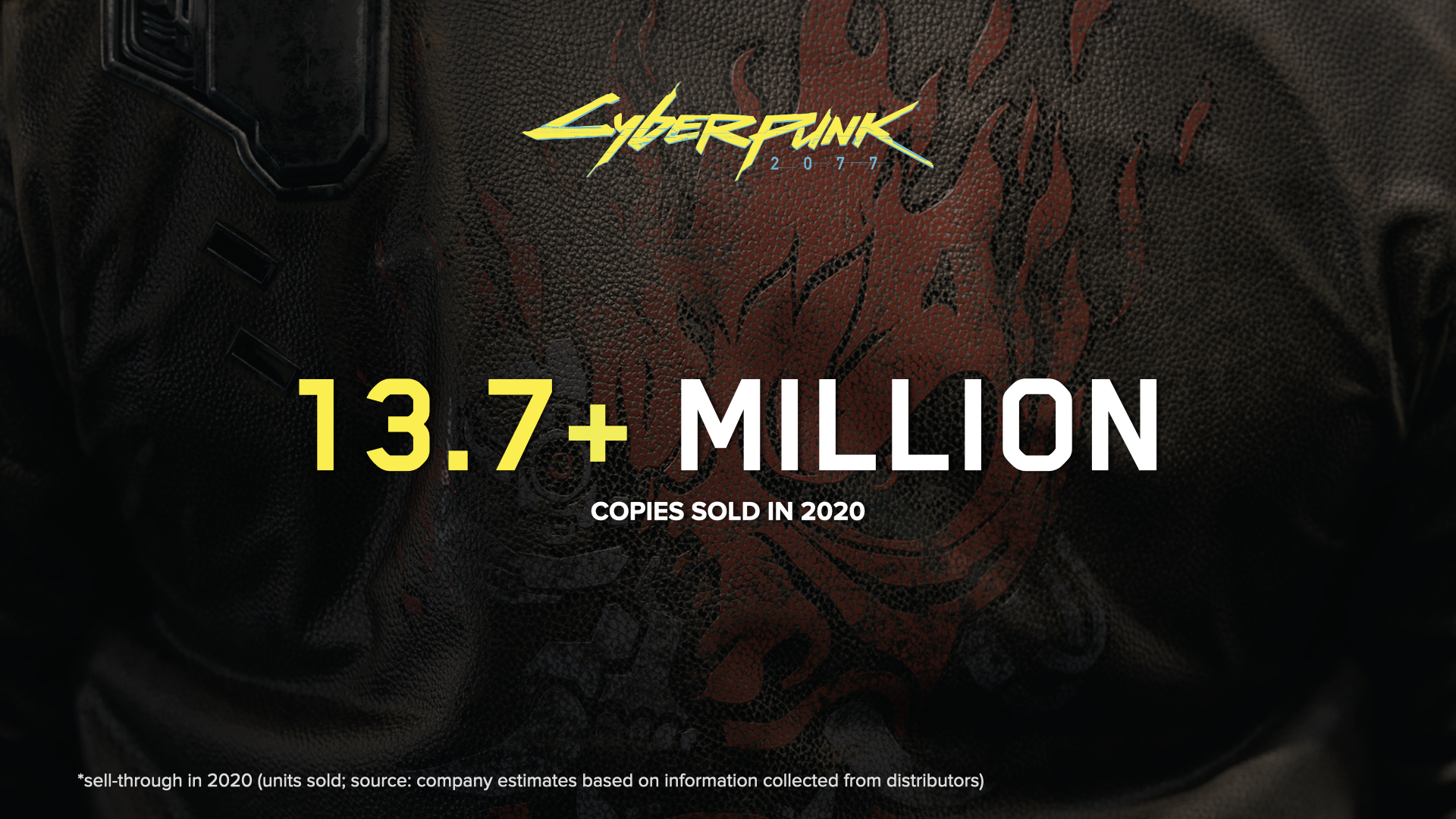
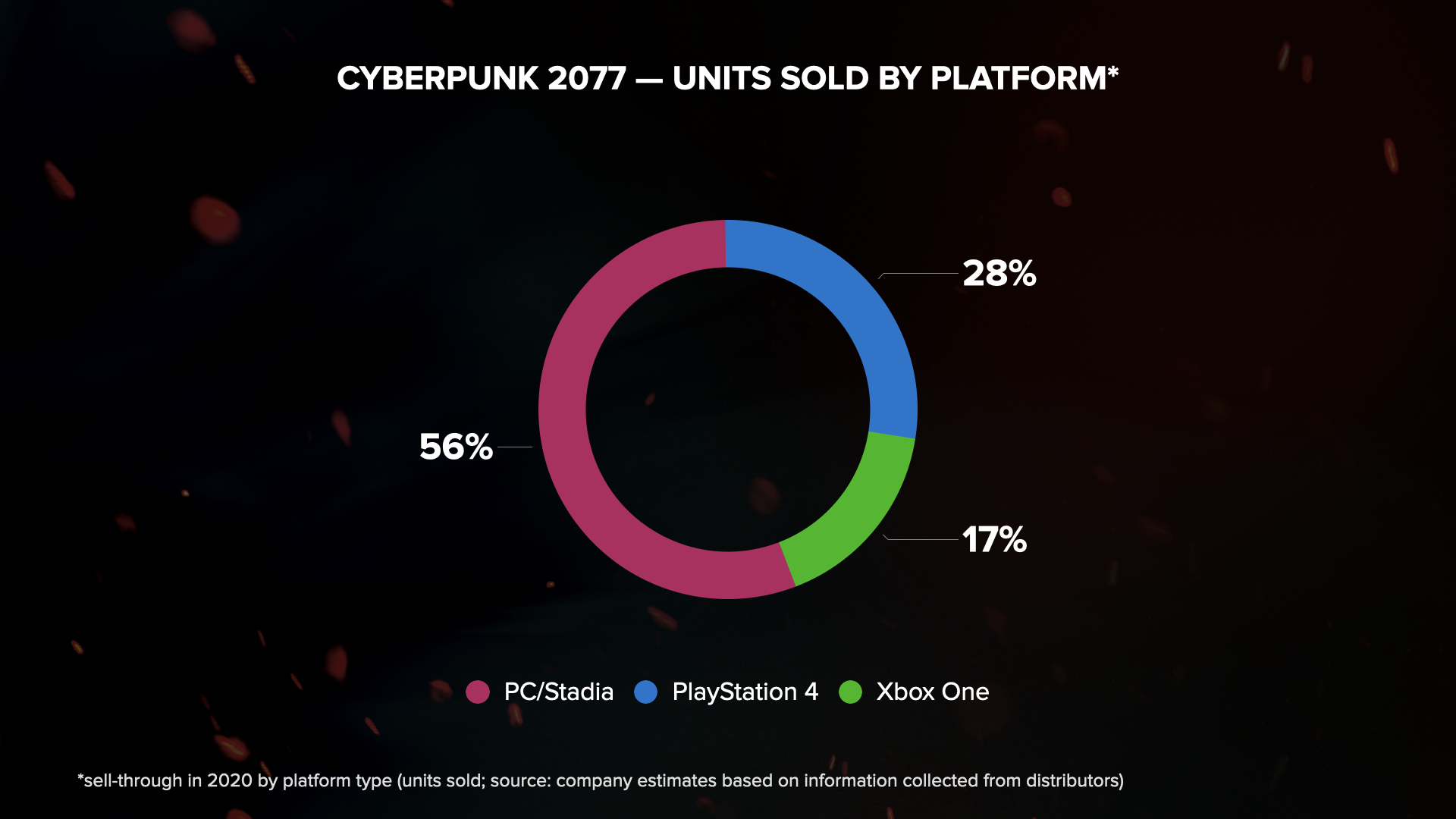
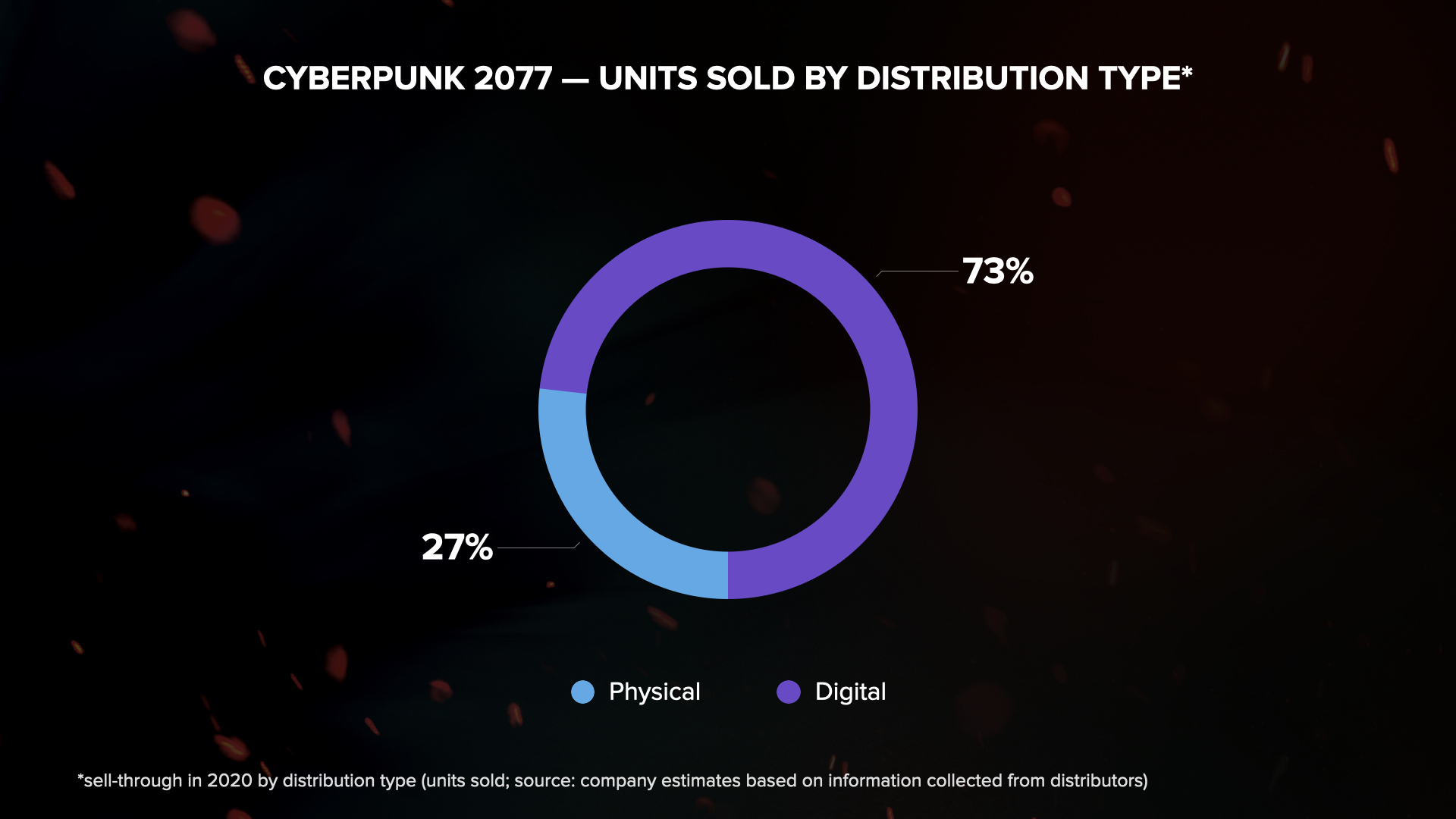
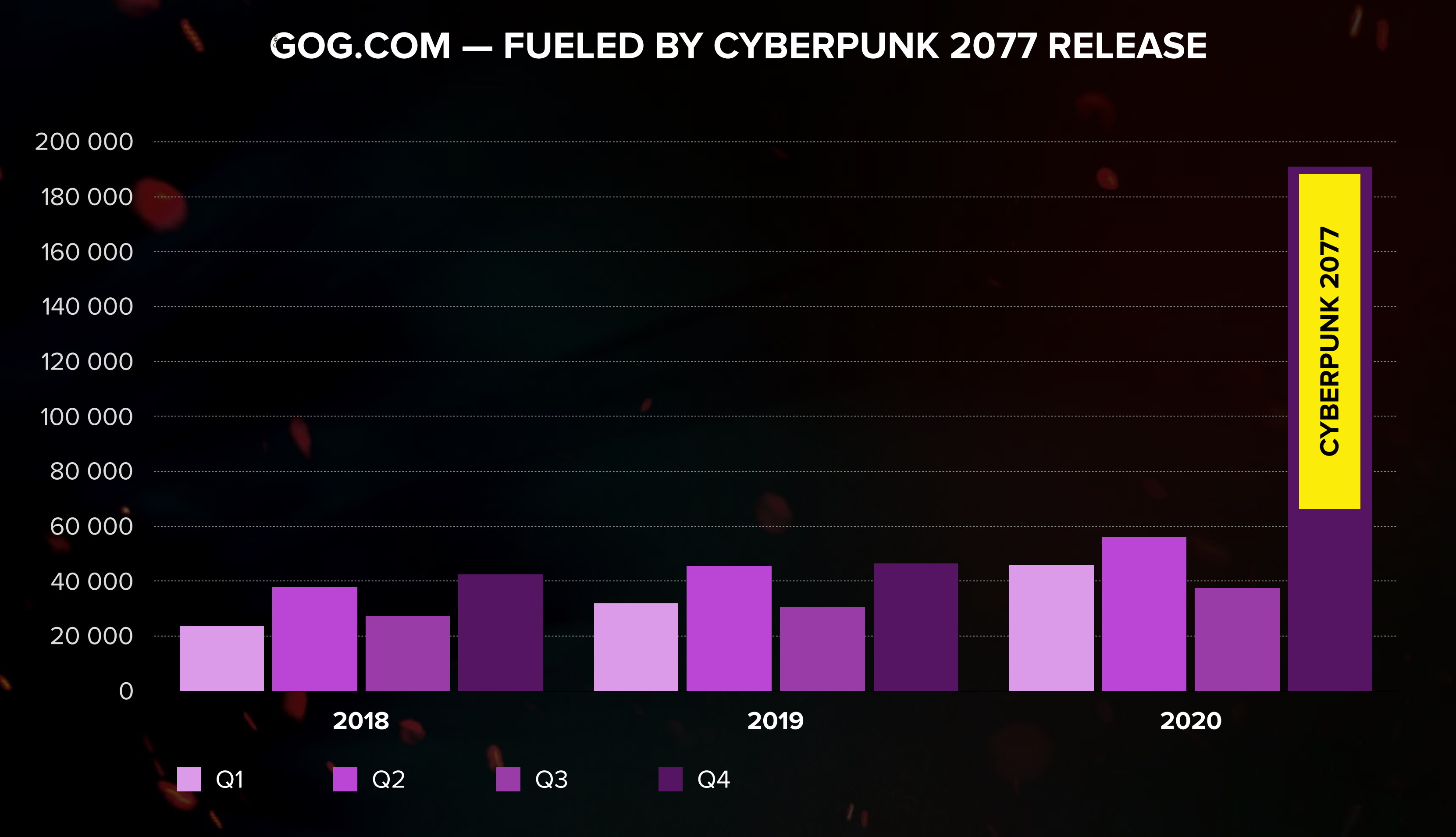
CD Projekt president and joint CEO Adam Kiciński acknowledged in a management report that Cyberpunk 2077 got off to a rougher start than anyone expected, but defended it as a creative endeavor and reiterated the studio's promise to stick with it.
"Developing Cyberpunk 2077 was, without a doubt, the biggest and most complex project we’ve ever engaged in," he said. "We did indeed enter uncharted territory and undertake risks. While not everything has gone according to our plans, from the creative standpoint we are proud of most of the pieces which make up the game. As for those we’re not proud of—we are improving them, and will continue to do so."
"Given the knowledge and experience gained in the recent months, we feel we should have handled certain matters differently. This sentiment is reflected by our strategy update, published in late March, which devotes much space to our nascent transformation. Its goal is to streamline our operations and allow us to more efficiently work towards our objectives. Allow me to underscore that we remain committed to pursuing breakthroughs and achieving true innovation. As before, we will not be afraid to enter uncharted territory, undertake risks, and make mistakes."

Despite its troubles in 2020, CD Projekt confirmed its recent financial predictions, reporting total revenues of $563 million on the year, resulting in profits of roughly $303 million. The report also reveals that CD Projekt's refund program for Cyberpunk 2077 ended up costing it roughly $2.2 million, a tidy sum but a tiny slice of the overall pie—certainly not enough to have any meaningful impact on its fortunes.
The biggest gaming news, reviews and hardware deals
Keep up to date with the most important stories and the best deals, as picked by the PC Gamer team.
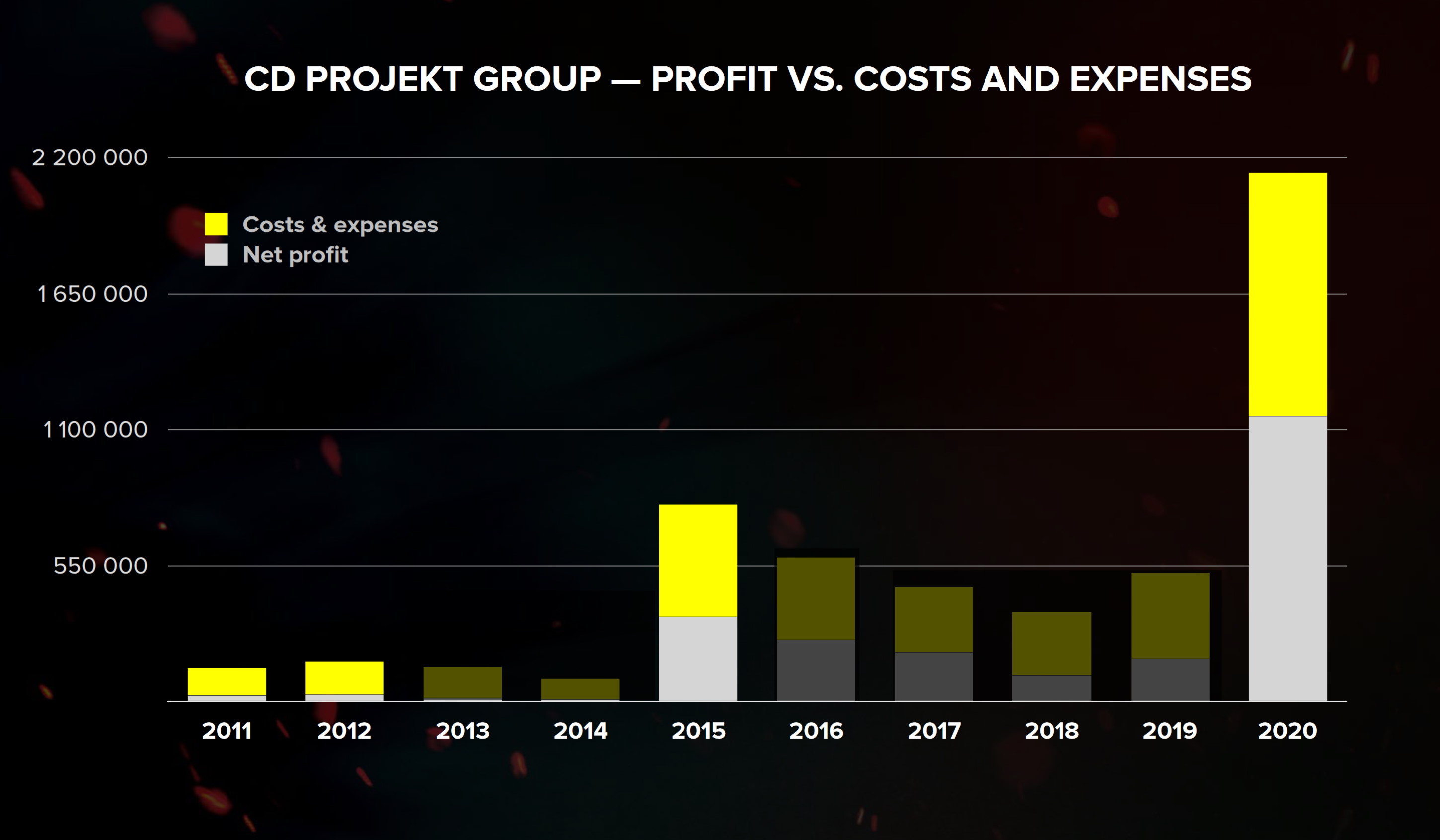
Cyberpunk 2077 is a big success then, although it remains to be seen whether it can become the long-term success of The Witcher 3: Wild Hunt. CD Projekt noted that The Witcher 3 surpassed 30 million unit sales in 2020, while The Witcher series as a whole broke 50 million. The studio recommitted to making Cyberpunk a game it can "be proud of," but there are a lot of hurdles to overcome, including the fact that, as CD Projekt said in December 2020, the majority of those 13 million sales—roughly eight million—came as preorders. These days, the bloom is fully off the rose: It remains in decidedly not-great shape, and still isn't available on the PlayStation Store.
Despite that, CD Projekt said that it's not turning its back on the Cyberpunk series, and also hinted at new Witcher games coming down the road, describing both as "pillars of the company's further growth.”
"In addition to further updates to Cyberpunk and free DLCs, in the second half of the year we plan to release dedicated next-gen console editions of both Cyberpunk and The Witcher 3," chief financial officer Piotr Nielubowicz said. "In addition, we’re approaching the release of The Witcher: Monster Slayer, a location-based augmented reality mobile game. And of course we continue to work on other projects which will bear fruit in later years."

Andy has been gaming on PCs from the very beginning, starting as a youngster with text adventures and primitive action games on a cassette-based TRS80. From there he graduated to the glory days of Sierra Online adventures and Microprose sims, ran a local BBS, learned how to build PCs, and developed a longstanding love of RPGs, immersive sims, and shooters. He began writing videogame news in 2007 for The Escapist and somehow managed to avoid getting fired until 2014, when he joined the storied ranks of PC Gamer. He covers all aspects of the industry, from new game announcements and patch notes to legal disputes, Twitch beefs, esports, and Henry Cavill. Lots of Henry Cavill.


